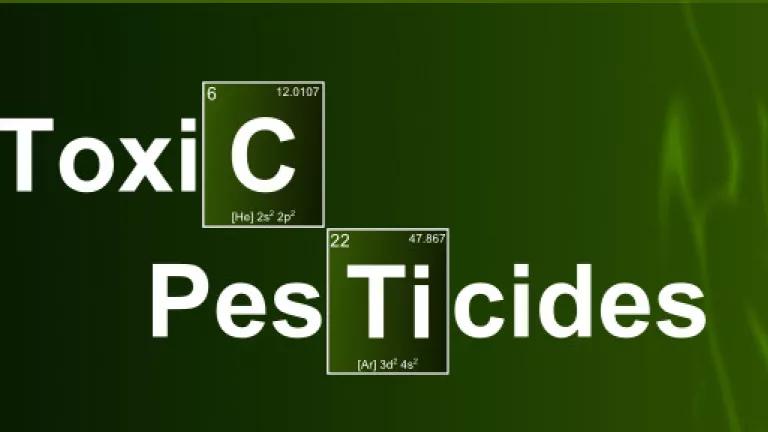
Chemicals. Cancer. Cash. Wonderful plot devices for a binge-worthy television series featuring a Winnebago-driving high school teacher turned kingpin. Not so amusing, however, when they converge in a pesticide recently approved by EPA for use on fields planted with genetically engineered corn and soy.
Enlist Duo™ AgroSciences's so-called solution to herbicide-resistant weeds, is the combination of two herbicides (glyphosate and 2,4-D) that have both been recently linked to cancer by the International Agency for Research on Cancer (IARC).
IARC, the World Health Organization agency that specializes in cancer research, recently convened two expert meetings to evaluate the links between glyphosate, 2,4-D, and cancer. The first of these meetings (Meeting 112, March 2015) brought together 17 scientific experts from 11 countries to evaluate the carcinogenicity of five organophosphate pesticides, including glyphosate. After assessing a wide range of epidemiologic, animal, and mechanistic studies, the expert panel unanimously declared glyphosate as group 2A or "probably" carcinogenic in people (for more information on the glyphosate decision, see Dr. Jennifer Sass's blogpost here).
The second meeting (Meeting 113, June 2015), which convened 26 scientific experts from 13 countries, assessed the carcinogenicity of one insecticide (lindane - a chemical still used on children's heads to treat lice!) and two herbicides (DDT and 2,4-D). The international panel of experts found that the body of scientific literature contained enough evidence to classify 2,4-D as group 2B, or "possibly" carcinogenic in humans. The classification was based on limited evidence of carcinogenicity in animals and strong evidence of in vivo and in vitro oxidative stress (a process that can disrupt normal cellular functions), along with moderate evidence of suppression of the immune system.
While the IARC assessment of cancer risks for 2,4-D and glyphosate are very significant, there are a host of additional reasons why Enlist Duo should not have been approved by EPA (for more details, see NRDC comments to EPA here), including:
- Evidence from molecular, animal, and epidemiologic studies demonstrating that 2,4-D can adversely impact the thyroid - an important organ involved in vertebrate (including human) brain development.
- The devastating impact of glyphosate on milkweed - the sole food source for Monarch butterfly larvae.
- The potential for human exposure to Enlist Duo via breast milk, drinking water, air/dust in the 15 approved registration states (including Arkansas, Illinois, Indiana, Iowa, Kansas, Louisiana, Minnesota, Missouri, Mississippi, Nebraska, Oklahoma, Ohio, South Dakota, North Dakota, Wisconsin).
Approving Enlist Duo was always a bad idea (which is why NRDC sued to block its approval). The recent IARC findings on glyphosate and 2,4-D further underscore just how bad. The EPA should be protecting public health and encouraging alternative agricultural practices, like integrated pest management, rather than approving increasingly harmful pesticide combinations. While chemicals, cancer, and cash can make for a riveting fictional experience, the public shouldn't have to play a starring role when those elements collide in reality.



